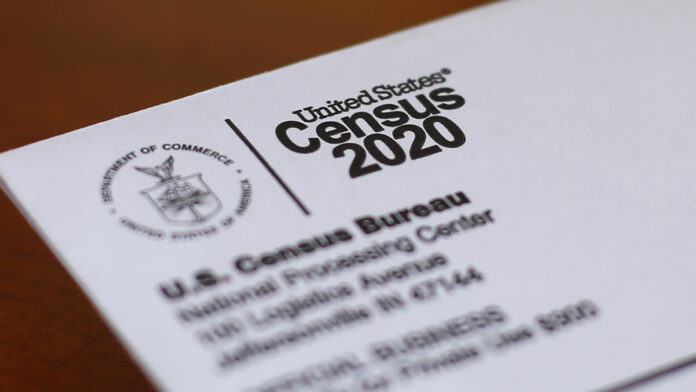
PROVIDENCE – Rhode Island will not be losing one of its two seats in the U.S. House as a result of data from the 2020 census, the U.S. Census Bureau announced Monday.
The announcement was a surprise to many because Rhode Island had been at risk of losing a seat in the House, according to early estimates. That would have set up a political showdown between Democratic Reps. David Cicilline and James Langevin.
The nation’s geographically smallest state has more than 1 million residents but had been losing population, and that stoked expectations that it might lose representation in Congress.
But the final tally showed that Rhode Island’s population grew from 1,052,567 in the 2010 census to 1,097,379 in 2020 – a gain of 44,812 people, or a 4.3% increase.
“Today is a good day for Rhode Island,” Langevin said in a statement Monday afternoon. “And I look forward to working shoulder to shoulder with Rep. Cicilline to crush [the COVID-19] virus and get Rhode Islanders back to work.”
Seats in the House are apportioned following a complicated formula based on each state’s population as determined by the once-a-decade national census.
The 435 seats in the House are divided among the states based on population. Seven representative seats changed as a result of the census among 13 states, reflecting the smallest apportionment shift since 1941, the bureau said.
The seven states that will lose a seat are California, Illinois, Michigan, New York, Ohio, Pennsylvania, and West Virginia. Meanwhile, Texas picked up two seats, and Colorado, Florida, Montana, North Carolina and Oregon picked up one each.
Rhode Island has had two seats in the House since the late 1700s, save for two decades in the early 20th century when it had three seats. The last time it had just a single seat was in the original Congress in 1789.
Rhode Island officials were ecstatic that the state was able to hold on to both House seats.
“Today is a prime example of why community advocacy matters,” said R.I. Secretary of State Nellie Gorbea, whose office took an active role in encouraging all state residents to participate in the census. “Not only has Rhode Island retained our representation in Congress and our four Electoral College votes – we have also ensured our share of billions of dollars in federal funding each year.”
The results have been delivered to Biden, who will subsequently deliver them to Congress. Redistricting data will be delivered no later than Sept. 30, U.S. Commerce Secretary Gina M. Raimondo during a news conference Monday. As commerce secretary, the former Rhode Island governor oversees the U.S. Census Bureau.
The 2020 census was the 24th such count in the nation’s history. It was put out in 46 languages to reach historically underrepresented areas, said Ron S. Jarmin, acting director of U.S. Census Bureau.
The population of the United States was found to be 331.4 million, according to the census results, a 7.4% increase from 2010 census, a slower growth rate than in 2010 census, and second slowest growth rate in the country’s history.
Overall, the Northeast region population increased 4.1% from the previous census results.
With reports from The Associated Press.












